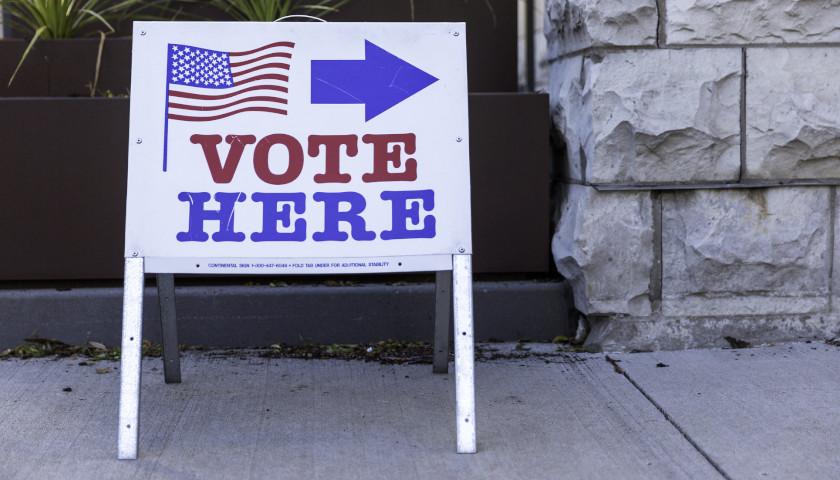by Anthony Hennen
Advocates say a bipartisan effort to seal criminal records for low-level felonies would give more people second chances and boost the Pennsylvania economy.
The House Judiciary Committee held a hearing on Wednesday to discuss House Bill 1826, which would expand the Clean Slate Act by automatically sealing some low-level felonies.
“While more than 36 million misdemeanor cases have been sealed by Clean Slate so far, many Pennsylvanians who have beat their addictions and moved on to become productive members of society are left with old drug felonies on their record,” Rep. Sheryl Delozier, R-Camp Hill, wrote in a legislative memo.
If the bill becomes law, some low-level felonies would be sealed after an offender makes it 10 years without committing a crime. Full restitution must have been paid as well. It also excludes those who were sentenced to prison for three years or more or who committed “serious or violent offenses.”
“Millions of Pennsylvanians have been helped and we can do more,” said Rep. Jordan Harris, D-Philadelphia. “It’s not a Republican policy, not a Democratic policy, but a good policy.”
Pennsylvania’s Clean Slate Act passed in 2018 and has served as a model for a handful of states since then. More than 1.2 million people have had a record sealed since Clean Slate’s passage.
Thirty-five states now have some form of felony sealing or expungement, noted Jenna Bottler, deputy director for the Justice Action Network.
HB1826 would make it easier for people to put their past behind them, experts argued.
“We know that individuals who remain crime free for four to seven years are no more likely to commit another crime than a member of the general public, but … only 6.5% of them ever actually achieve that expungement,” Bottler said.
The hearing focused on criminal justice reform, but the potential economic benefits of sealing more records were also discussed.
“We believe that Clean Slate should be part of a broad agenda to address workforce challenges in Pennsylvania,” said Alex Halper, director of government affairs for the Pennsylvania Chamber of Business and Industry.
“Employers in Pennsylvania simply cannot find people to fill open positions, and it has harmed our economy and continues to be a significant threat,” Halper said. “This is a workforce crisis. It’s pervasive, it’s severe,” he said, noting that the commonwealth has two job openings for every job seeker.
A conviction can follow people for years, even decades, and makes it harder for workers to get a job.
Gina Davis, a higher education professional who was convicted of a felony drug charge decades ago, spoke of how it has limited her opportunities. She noted that she was recently denied a license to become a notary, after passing the test and paying for it, “because of my $20 criminal felony.”
“I worked really hard to overcome my addiction,” she said. Yet her felony in 1994 has placed some jobs permanently out of reach. “It makes the workplace unbearable for us with criminal records.”
The biggest negative effects hit Pennsylvanians with criminal records, but their lack of opportunity hurts the state economy as well.
“Accountability is an essential component of justice, but when someone has fulfilled the debt they owe to our community, it is essential that we incentivize them to become productive citizens in their communities,” said Ashley Klingensmith, Pennsylvania state director of Americans for Prosperity.
One expert, however, cautioned that unintended consequences could come from sealing criminal records.
“Clean Slate legislation is only part of the larger problem known as prison recidivism,” said Joe Harford, founder of cyber security business Reclamere and who completed a PhD at Penn State University on workforce education and development.
Harford noted the troubles of the “ban the box,” which bars questions about criminal history on job applications, and how the policy led to lower employment for young men of color.
“Employers who want to avoid hiring people with a criminal past may then discriminate against applicants from groups whose criminal records are more common,” Harford said. “Once again, this would most likely harm young men of color who never had a criminal record to begin with.”
Instead, Harford noted alternatives such as investing more in rehabilitation and job training programs.
“The problem does not start with release. The problem does not start when they get home. The problem starts when they are incarcerated and they are placed in jail or prison,” he said. “We currently do very little to give individuals the skills and support they need to compete in the labor market.”
– – –
Anthony Hennen is a reporter for The Center Square. Previously, he worked for Philadelphia Weekly and the James G. Martin Center for Academic Renewal. He is managing editor of Expatalachians, a journalism project focused on the Appalachian region.
Photo “Man in Prison” by RODNAE Productions.





